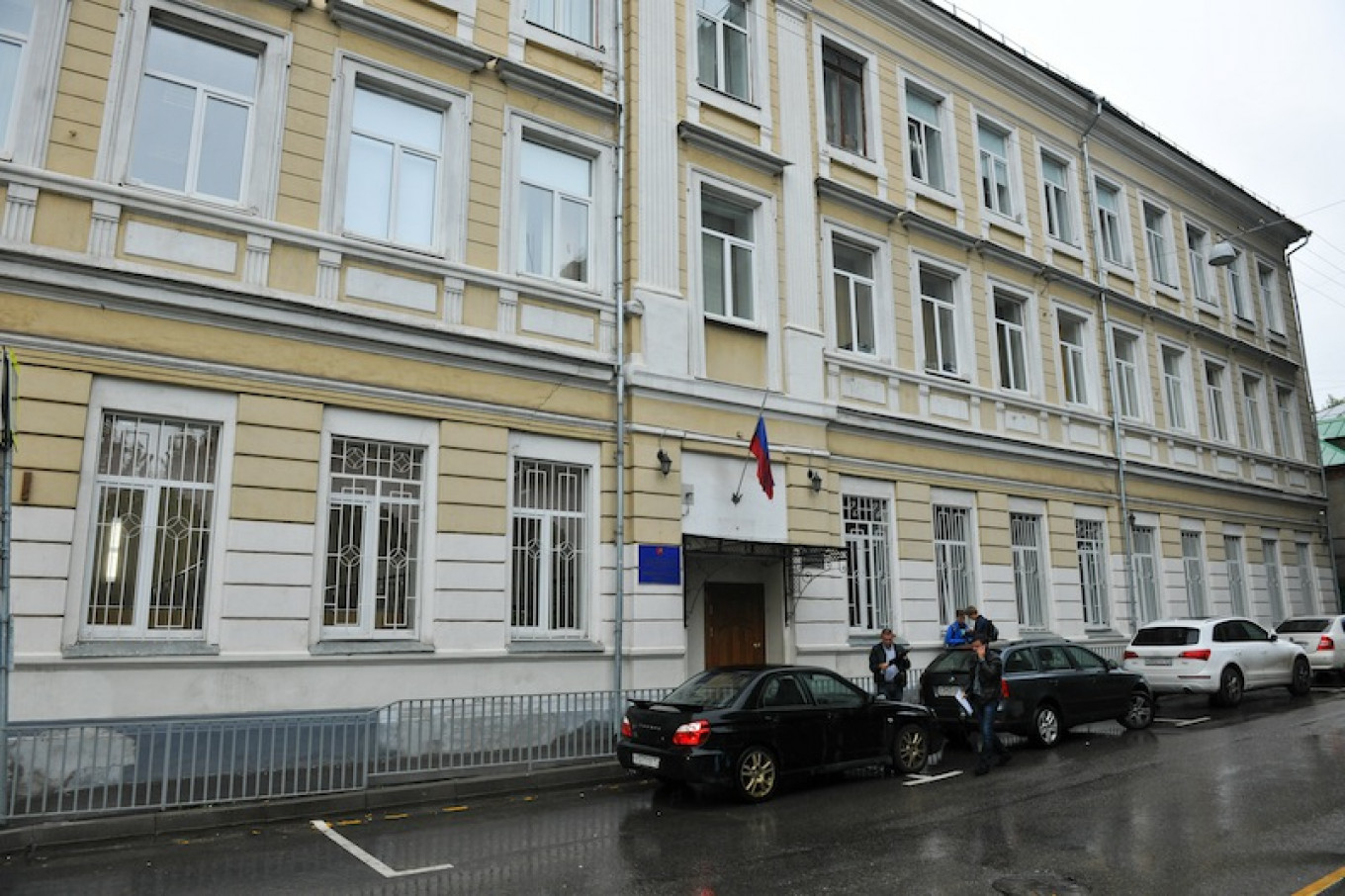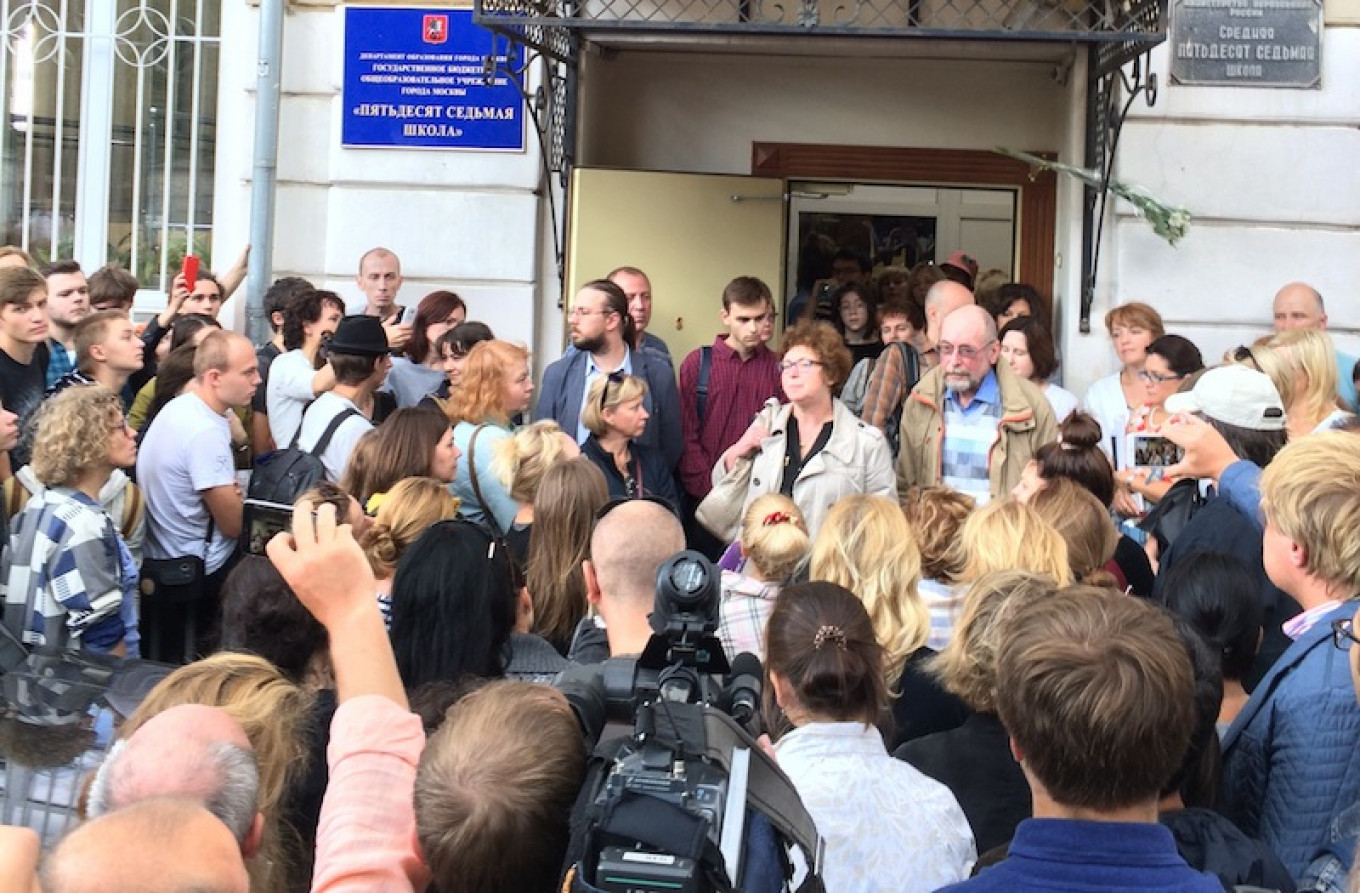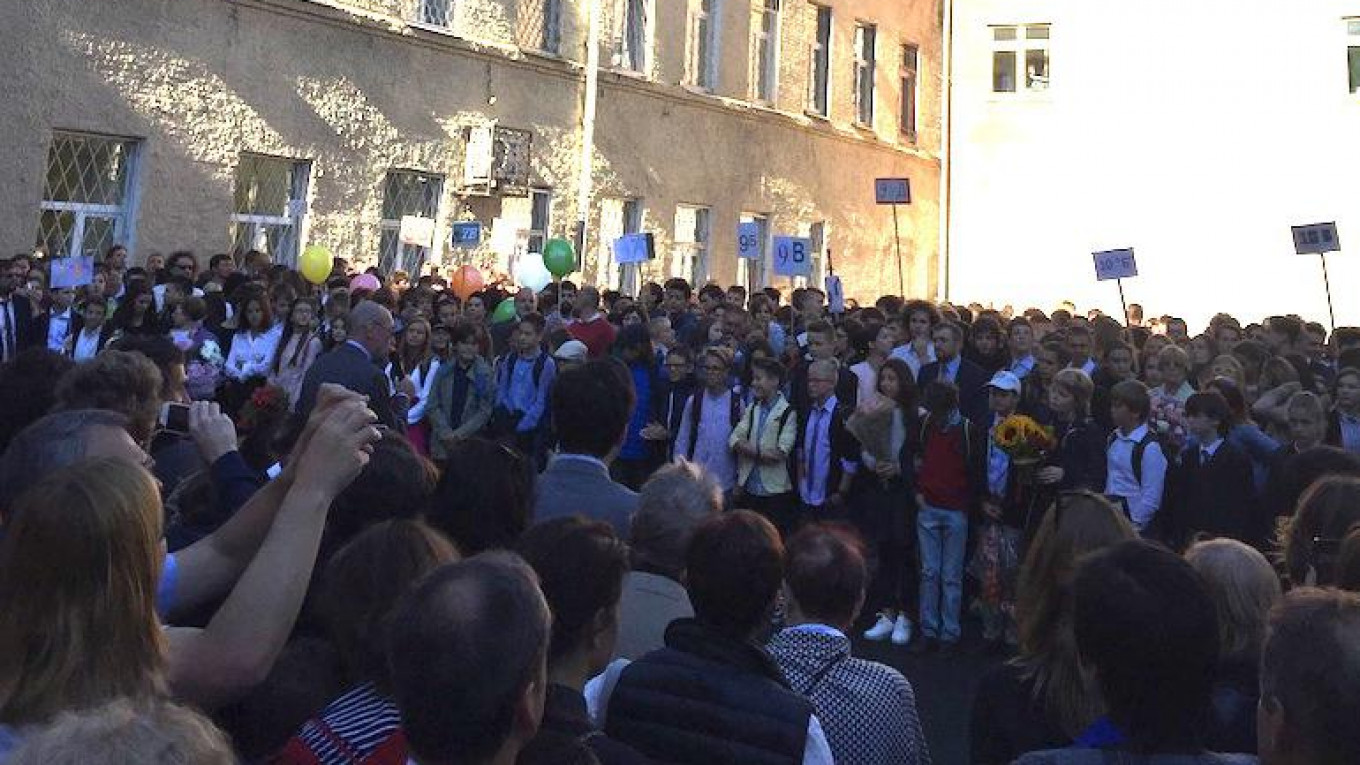When Yekaterina Krongauz first tried to break this story, it was more than a decade ago and she was only twenty-one. Despite the rumors and the general sense that her subject was a known womanizer, she failed. There simply was not enough evidence — a typical problem when it comes to proving sexual abuse.
Then, last month on Aug. 29, two days before children in Russia go back to school, Krongauz dove back in. Now a journalist for the news website Meduza, she sparked a public controversy that resembles the sex scandal at the heart of the Oscar-winning film “Spotlight.”
“For more than 16 years, we’ve known that the history teacher was having affairs with his students,” Krongauz wrote on Facebook. “He was quite a handsome man: smart, ironic, charismatic. It was hard not to fall in love with him.”
The teacher she was describing once taught at Moscow School No.57 — one of the country’s most elite institutions, famous for its high-quality education, especially in math. Dating back to the Soviet era, this is where you sent your children, if you were part of the Russian intelligentsia.
Moscow’s ‘Spotlight’
A few days later, after the whole story gradually unfolded (mostly in posts on Facebook), it was finally clear what happened: a decade ago, Krongauz may have failed to break the story at School No.57, but someone else more recently had quietly gathered the missing evidence.
Olga Nikolayenko, a graduate of the school and the former director of a center that educates refugee children, soon revealed that it was she who collected the evidence against her old teachers. She conducted the investigation in private, she says, in her own personal fight to prove what really took place at her school.
“It all started with one brave girl,” Nikolayenko wrote on Facebook. “She came to me once and told me what happened to her in school. She said she didn’t want this to happen to anyone else ever again, and that there are more people willing to tell me their stories. I promised to do something about it.”
This year, Nikolayenko spent most of the summer collecting these testimonies. She spoke to almost a dozen people who claimed they had intimate relationships with the school’s history teacher, Boris M. The stories were hard to believe, she says, yet it was even harder to believe that people would invent them.
In late July, Nikolayenko revealed her findings to one of the school’s teachers whom she knew she could trust. Soon, the school’s administration was informed about the allegations. Suddenly, rumors that had circulated for years were now substantiated by real evidence.
At that moment, the school’s director, Sergey Mendelevich, and his wife, Ekaterina Vishnevetskaya — both prominent educators who have stood at the school’s helm for almost 30 years — might have at least salvaged their own reputations, if only they had agreed to move the investigation forward.
But they did no such thing. Instead, Mendelevich dismissed the evidence against Boris M., who happens to be his long time friend. Boris M., who was in Israel at the time, then quietly resigned.
A month later, when the story started unfolding on Facebook, many of the school’s parents and graduates simply refused to believe that a teacher (and probably not just one) at such a respected school could engage in unethical activity on such a scale.
But Krongauz had unleashed something that could not be stopped. The stories about sex between the teacher and his students are impossible to verify, but they paint a clear picture, and they coincide in ways that seem highly authentic.

“I had sex with Boris M. when I was in 11th grade,” Inna M. wrote on Facebook. “I think a teacher shouldn’t sleep with his students.”
“For the last two years, since the beginning of the 11th grade, I’ve been wishing with all my heart that all this had never happened to me and had just turned out to be a bad dream. I can’t convey how painful it was,” another woman named Revekka G. wrote online.
Natalya P. told a more elaborate story in her Facebook post: She and some other students went to a dacha with Boris M. and got drunk there; the teacher approached her late at night wearing nothing but his underwear and urged her to “use her chance” with him. She escaped, but only to hear him later that night having sex with another former student in the next room.
Damage Control
As new allegations kept pouring in, the school’s administration first acted like nothing was happening. On Sept. 1, the back-to-school festival went ahead, as always. Mendelevich, the school’s director, made some vague and evasive statements.
At the first staff meeting of the new school year, four teachers stood up and demanded an investigation into the sex-abuse charges. These teachers were immediately booed out of the room, and accused of conspiring against the school. They resigned the same day. The administrators looked defensive and triumphant all at once.
But the storm raging on social media was only growing.
Unexpectedly, Mendelevich announced his resignation later that same night. Even more unexpectedly, he announced the next morning that he would actually stay put, in order to deal personally with the school’s expanding crisis.
The administration then became evasive again, which was particularly uncharacteristic behavior for an institution built on liberal and democratic traditions. Shocked parents say they have started thinking urgently about transferring their children to other schools. Even more students and parents, however, rallied to defend Mendelevich, accusing the school’s critics of conspiracy and slander.
This defensive reaction is entirely natural, says psychologist Lyudmila Petranovskaya. “Imagine: this is a good school, really hard to get into. Your child spent months preparing for the entry exams, passed them, and now it turns out that he entered a very dubious institution instead of the best school? Of course it’s a shocker.”
The school was split, but the administration stood firm, and education officials in Moscow’s City Hall denied accepting Mendelevich’s resignation.

The Explosion
Then something happened. Despite the city’s support, on Monday morning, Sept. 5, the school’s director issued yet another statement, implying that he would resign imminently. Mendelevich was now apologizing to the victims of abuse, and admitting that he should have treated their claims more seriously. “I considered it blackmail and emotional fantasy,” he said. “With time, it became clear that my reaction to them should have been immediate and firm, and a proper investigation by law enforcement should have been initiated from the very beginning.”
All the while, Facebook continued to buzz with rumors about the school, and people were coming forward with new allegations. Other teachers were being accused of even more serious crimes, but the public still largely rejected the talk as gossip.
Then came a collective statement published on Facebook that resonated like an explosion.
“We are now certain,” wrote Yelena Bunina, a graduate of School No.57 and a manager at Yandex, Russia’s leading Internet search engine, “that the information about enormous ethical and moral violations committed by Boris [...] is true.”
She was referring to her own friend and mentor, Boris D., who is one of the most respected and honored teachers in the country. In many ways, Boris D. is the face of the school and its cherished mathematics department.
“We now know for a fact that [Boris] D. had sexual contact with students. The victims were underaged boys. [...] These incidents were never voluntary for the heterosexual victims,” wrote Vadim Tseitlin, a graduate of the school.
Tseitlin was part of the alumni group that conducted the investigation. “We all respected [Boris] D. a lot. [Other graduates from the group] have been his colleagues for many years and had great relationships with him,” he wrote. “For them, it was incredibly hard to go public with such serious accusations against a person so close. [...] The testimonies of the victims and [Boris] D.’s own confession were enough to convince us.”
This was something the school’s administration could not survive. Mendelevich resigned the next day. The fight — and the schism that split the school — had ended.
What’s Left?
State officials’ reaction to the scandal has been minimal. The Investigative Committee announced a probe into the allegations, and Pavel Astakhov, Russia’s children’s ombudsman, wrote several tweets, calling for the abolition of the statute of limitations on sex crimes against minors. He has also referred to the teachers implicated in the scandal as “pedophiles.” And human rights ombudsman Tatyana Moskalkova has stressed the need to develop ways to protect victims’ identities, to make it easier for them to come forward to law enforcement.
Russia’s Criminal Code lays out special punishment for those who use a victim’s dependent position to coerce sex. The teacher-student relationship is subject to these laws, but crimes here are rarely prosecuted. Police tend to take action only when the coercion borders on rape, says Mari Davtyan, a lawyer who specializes in women’s rights and sexual offenses. The chances of criminal prosecution also depend on the statutes of limitations, she adds: “And judging by the look of things [at School No.57], I’m afraid, no one will be prosecuted.”
Ideally, Russian legislation would define sexual harassment more clearly, and there would be laws specifically banning such behavior in educational institutions, Davtyan says. “But in addition to this, society’s mindset must change in order for the system to work. Right now, we are discussing in all seriousness whether it is a problem if a teacher sleeps with teenagers, although there is really nothing to discuss. Judges and police officers are part of this society, too,” the lawyer says.
The Moscow Times is withholding the last names of those involved in the scandal for ethical reasons.
A Message from The Moscow Times:
Dear readers,
We are facing unprecedented challenges. Russia's Prosecutor General's Office has designated The Moscow Times as an "undesirable" organization, criminalizing our work and putting our staff at risk of prosecution. This follows our earlier unjust labeling as a "foreign agent."
These actions are direct attempts to silence independent journalism in Russia. The authorities claim our work "discredits the decisions of the Russian leadership." We see things differently: we strive to provide accurate, unbiased reporting on Russia.
We, the journalists of The Moscow Times, refuse to be silenced. But to continue our work, we need your help.
Your support, no matter how small, makes a world of difference. If you can, please support us monthly starting from just $2. It's quick to set up, and every contribution makes a significant impact.
By supporting The Moscow Times, you're defending open, independent journalism in the face of repression. Thank you for standing with us.
Remind me later.





